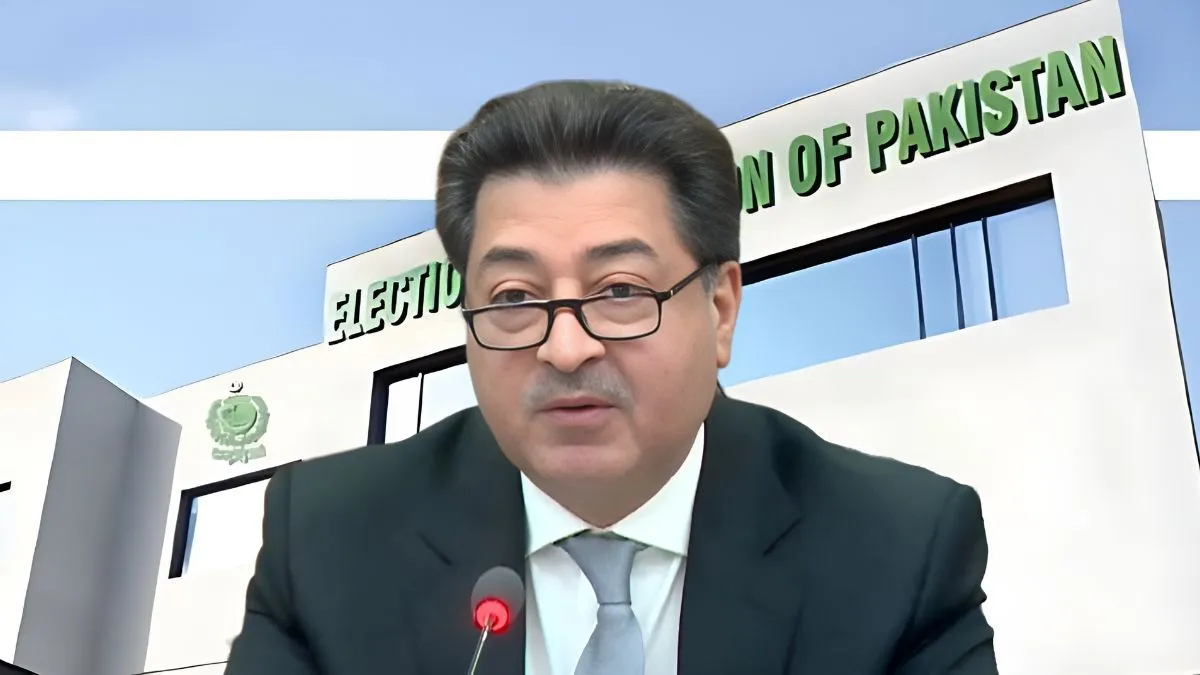Election Commission of Pakistan (ECP) to enforce the Supreme Court’s Decision on Reserved Seats Issue
Islamabad: The Election Commission of Pakistan (ECP) has decided to implement the Supreme Court of Pakistan’s decision on the Pakistan Tehreek e Insaf Reserved Seats Issue in The Assemblies.
On July 12, a 13-judge full bench of the Supreme Court ruled that the opposition PTI should be granted reserved seats for women and non-Muslims in the national and provincial assemblies. This ruling could potentially have significant implications for Prime Minister Shehbaz Sharif’s ruling coalition and may establish the PTI as the largest party in both houses of Parliament.
The ECP recently held a crucial meeting to deliberate on the verdict of the Supreme Court but was unable to reach a decision. An official from the ECP stated that the notifications of 39 PTI MNAs who disclosed their party affiliation were in order. However, the documents of 41 other MNAs required thorough examination.
According to the official, the 41 independent MNAs are required to submit duly signed and notarized statements to the ECP within 15 days, detailing their party affiliation in the February 8 general elections.
Once these statements are received, the ECP will notify the relevant political party and request confirmation within 15 days. Subsequently, in accordance with Article 51 of the Constitution, the ECP will publish a list of the elected candidates on its website and submit a compliance report to the apex court.
If the ECP or PTI require additional clarification, the judgment allows the commission to seek guidance from the court by submitting a suitable application to the majority of judges. An ECP official expressed concerns about whom to contact in the PTI for verification due to the party’s lack of structure and unrecognized intra-party elections, indicating that the commission may need to seek further instructions from the court.
In a recent press release, the ECP announced its decision to uphold the ruling of the Supreme Court. The commission has instructed its legal team to promptly identify and address any obstacles in implementing the Supreme Court’s decision. Additionally, the ECP condemned and rejected the criticism it received from the PTI.
The press release dismissed the call for the commission’s resignation as unreasonable, affirming that the commission will uphold the constitution and laws and remain unaffected by any form of pressure.
The ECP stated that it did not misinterpret any decision. This refers to the minority judgment’s comment that the commission had misinterpreted the court’s ruling on January 13, which resulted in the PTI losing its election symbol of the ‘bat’ and having its candidates listed as independents.
Just to remind you, the minority opinion stated that the ECP did not have the authority to designate properly nominated candidates of a political party as independent candidates.
The Election Commission refused to recognize the PTI’s intra-party election as valid. PTI appealed the decision to multiple forums, but the Election Commission’s ruling was upheld. Consequently, PTI’s intra-party elections were deemed invalid, leading to the withdrawal of the ‘bat’ symbol under Section 215 of the Elections Act. The Election Commission emphasized that it’s inappropriate to blame them for this outcome, as per their press release.
There are reports indicating that 39 legislators, who were confirmed as PTI MNAs by the court, had expressed their association with the party in their nomination documents. To become a candidate for any party, it is mandatory to provide the party ticket and a declaration to the returning officer (RO). However, the aforementioned candidates failed to meet these requirements.
The ECP stated that it was not feasible for the ROs to announce them as PTI candidates.
The 41 individuals running as independent candidates did not mention PTI in their nomination documents, nor did they declare any association with the party or present a party ticket.
The Returning Officers permitted them to run as independent candidates in the election. They later chose to join the Sunni Ittehad Council (SIC) within three days of winning the election. The SIC appealed against the decision of the election commission and the Peshawar High Court, but their appeal was rejected by the Supreme Court, as stated by the ECP.
The statement mentioned that the PTI was not involved in these proceedings at any point.
Reserved Seats Issue Explanation:
In a landmark 4-1 decision rendered in March, the ECP ruled that the SIC was ineligible to claim a quota for reserved seats due to incurable legal defects and violations of mandatory provisions pertaining to the submission of party lists for reserved seats.
In a recent decision, the commission has opted to allocate parliamentary seats among various political parties. The PML-N and the PPP have emerged as the primary beneficiaries, gaining 16 and five additional seats respectively, while the JUI-F has been granted four seats. However, the PTI has rejected the verdict, citing it as unconstitutional.
In the same month, the PHC rejected an SIC petition that contested the ECP’s decision and refused to allocate reserved seats.
In April, the SIC lodged a petition with the SC, initiated by party leader Sahibzada Hamid Raza, to challenge the PHC judgment.
As of May 6, the highest court has temporarily suspended both the March 14 PHC ruling and the March 1 ECP decision, which aimed to exclude women and minorities from reserved seats in the SIC.
The Supreme Court has also directed that the current petitions be presented to the three-judge committee responsible for forming the panel for the reconstitution of a larger bench. This action was prompted by Attorney General for Pakistan Mansoor Usman Awan’s emphasis on the requirement, under Section 4 of the Supreme Court (Practice and Procedure) Act 2023, for the case to be heard by a larger bench, as it involves the interpretation of constitutional provisions.
The Election Commission of Pakistan (ECP) has temporarily halted the announcement of election results for 77 members of the national and provincial assemblies.
A total of 88 lawmakers have been suspended, with 44 from PML-N, 15 from PPP, 13 from JUI-F, and one each from PML-Q, IPP, PTI-P, MQM-P, and ANP.
The ruling coalition has experienced a setback, losing its two-thirds majority in the lower house of Parliament. Its numerical strength has decreased from 228 to 209 in the 336-seat House. The threshold for a two-thirds majority now stands at 224 seats.
“The PML-N’s representation in the House has diminished from 121 to 107, and the PPP’s has similarly decreased from 72 to 67.”
Please memorize the following information: The recent suspensions involve a total of 22 National Assembly members who were elected for reserved seats representing women and minorities. Specifically, the suspended members consist of 14 from PML-N, five from PPP, and three from JUI-F.
During a comprehensive meeting led by the CJP, various dimensions of the controversy were thoroughly analyzed. This case holds significant importance as it is unprecedented and is expected to have a substantial impact on the future allocation of reserved seats among political parties in the legislature.
Conclusion:
The case presented to the court primarily revolved around the issue of how to handle reserved seats when they are not allocated to other parties with representation in Parliament and provincial assemblies, or assigned to the SIC, which did not participate in the recent general elections and therefore did not secure any seats – a prerequisite set by the ECP for the distribution of reserved seats.
The SIC contended that, based on the principles of proportional representation, it was not a constitutional mandate for a political party with general assembly seats to have contested the general elections in order to be eligible for the allocation of reserved seats.


